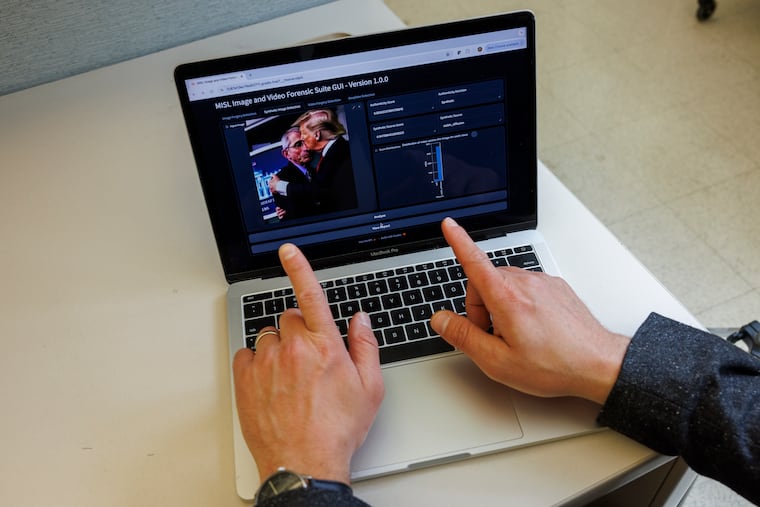How voters can avoid deepfakes and AI-generated misinformation in the 2024 presidential election
Experts say we’re experiencing the first presidential campaign of the artificial intelligence (AI) era. What's that mean, and what can we do about it?

We’re experiencing the first presidential campaign of the artificial intelligence (AI) era, experts say.
The country could see an infinite number of fraudulent photos and videos of candidates engaged in activities they may not actually be doing. And because AI grows more sophisticated by the day, it’s hard to discern what’s real and what isn’t.
“There’s so much potential for AI to create voting misinformation,” said Matthew Stamm, a Drexel University electrical and computer engineering professor who leads a team that detects false or manipulated political images. “Things are only going to get worse.”
So, how do we deal with what Stamm calls a “watershed moment” in American politics? Here’s what you need to know”
What is generative AI?
Generative AI is a kind of artificial intelligence technology that can produce various types of content, including text, imagery, audio, and synthetic data.
A widely known example was circulated last year in a political ad for then-presidential candidate Florida Republican Gov. Ron DeSantis that appeared on Twitter. It showed former President Donald Trump embracing and kissing Anthony Fauci, long a target of the right for his response to COVID-19. Stamm’s group debunked the image as fake.
“Using AI-created media in a misleading manner had never been seen before in an ad for a major presidential candidate,” he said.
How can AI affect the electoral process?
It can create false “evidence” of candidate misconduct; sham videos of election workers destroying ballots or preventing people from voting; phony emails that direct voters to go to the wrong polling locations; ginned-up texts sending bogus instructions to election officials that create mass confusion.
In short, “AI provides easy access to new tools to harm our democracy more effectively,” said Adav Noti, executive director of the Campaign Legal Center (CLC), a nonpartisan government watchdog group in Washington, D.C.
What are deepfakes?
A form of generative AI, deepfakes are synthetic media in which a person in a photo or video is swapped with another person’s likeness, or a person appears to be doing or saying something they didn’t do or say.
A recent example occurred before the January New Hampshire primary. An AI-generated robocall simulated President Joe Biden’s voice, urging voters not to participate, and “save” their votes for the November election.
Voters could have easily believed Biden recorded the message and “become disenfranchised” as a result, according to Noti.
How do we protect ourselves from AI disruptions?
Pennsylvania Secretary of State Al Schmidt is leading a newly formed Election Threats Task Force, intended in part to combat misinformation about voting. In a brief interview, Schmidt noted that in recent years we’ve seen “how easily misinformation has been spread using far more primitive methods than AI — tweets and Facebook posts with no video or audio.
“So AI presents a far greater challenge if it’s weaponized to deceive voters or harm candidates.”
Security specialists recommend election workers keep personal social media accounts private so that pernicious individuals armed with AI have less access to their images and voices. To avoid online intimidation on Election Day, experts also suggest election workers use multistep log-ins, ever-changing pass phrases, and fingerprint scanning.
“In 2020, we encountered a lot of ugliness related to threats, and have had to scramble to make sure our people feel safe,” said Schmidt, Pennsylvania’s top election official.
To battle fabrications, Stamm of Drexel said, the smart consumer could delay reposting emotionally charged material from social media until checking its veracity.
Ultimately, said Kathleen Hall Jamieson, director of the University of Pennsylvania’s Annenberg Public Policy Center, “Deepfakes won’t be easily detected.”
As a result, she added, “we should be suspicious of everything we see.”